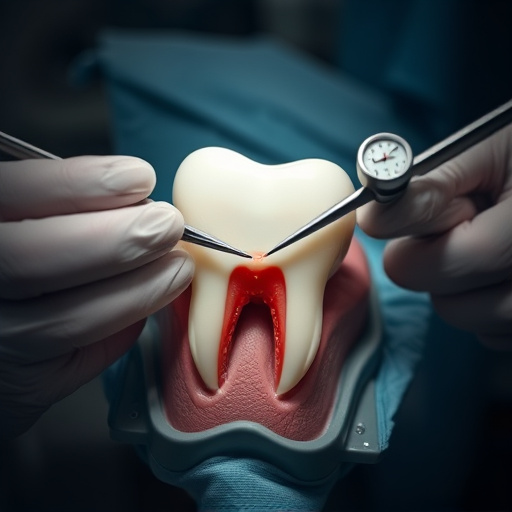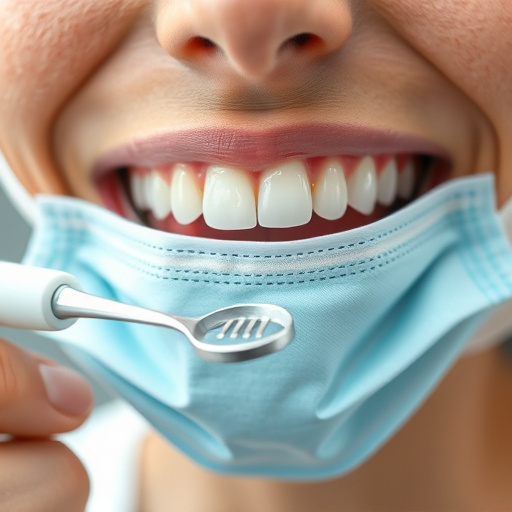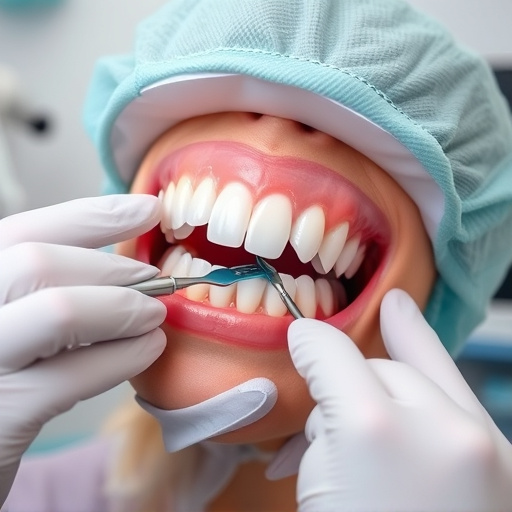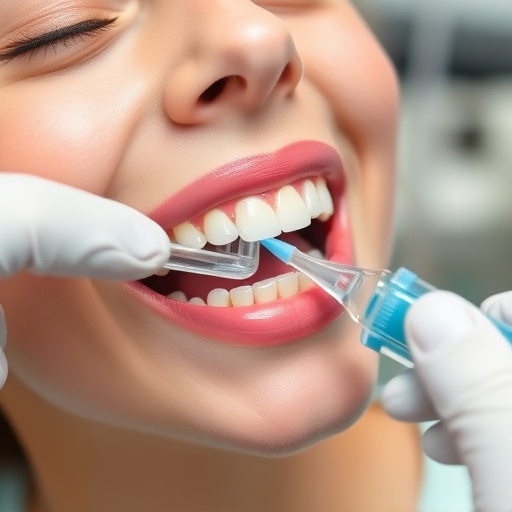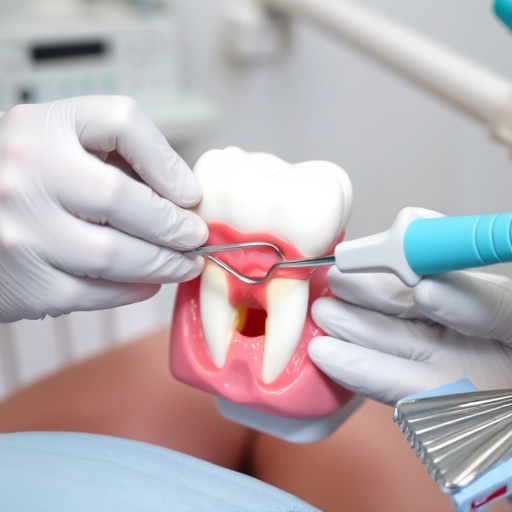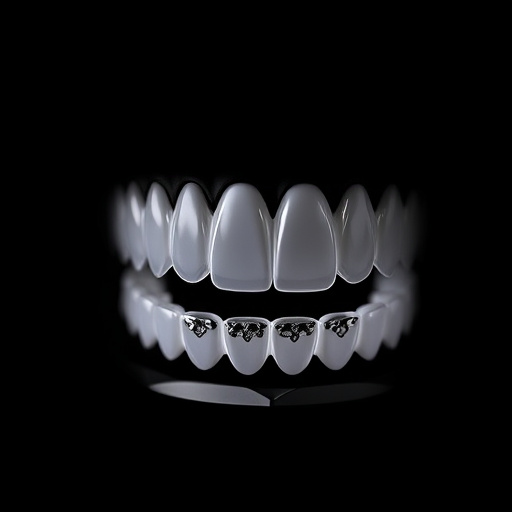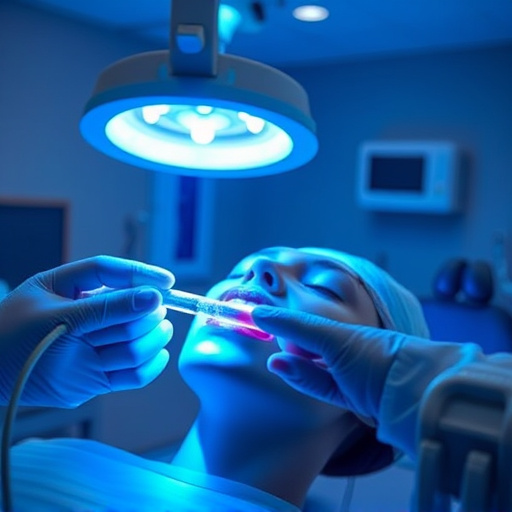Gentle dental care, focusing on preventive measures like regular check-ups, soft-bristled brushes, and flossing, reduces risks of decay and gum disease. This approach promotes optimal oral health for adults and children, teaching proper hygiene habits. By minimizing invasive procedures and preserving natural tooth structure, gentle touch techniques alleviate anxiety and speed healing in emergencies. Consistent daily routines, including mouthwash and clear aligners, are crucial for long-term oral well-being and overall health.
Gentle dental care is a holistic approach that goes beyond routine cleaning. By prioritizing soft, nuanced techniques and natural oral hygiene practices, individuals can significantly improve long-term oral health. This article delves into the transformative power of gentle dental care, exploring its impact on oral hygiene routines and the prevention of common dental issues. Discover practical daily practices and understand the profound health benefits that come from embracing a more gentle, effective dental care regimen.
- Understanding the Impact of Gentle Dental Care
- Daily Practices for Optimal Oral Hygiene
- Long-Term Health Benefits: Preventing Common Dental Issues
Understanding the Impact of Gentle Dental Care
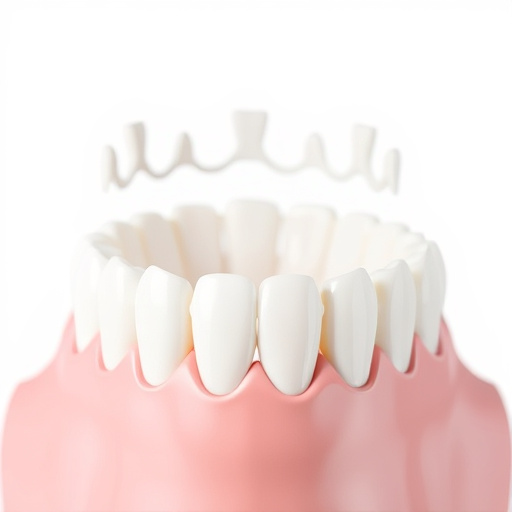
Gentle dental care is a philosophy that prioritizes preventive measures and minimally invasive procedures to maintain optimal oral health. By adopting this approach, individuals can significantly reduce the risk of common dental issues such as tooth decay and gum disease. Regular check-ups and cleanings become less about addressing problems after they arise and more about fostering a healthy mouth environment. This proactive mindset not only saves time and money in the long run but also ensures a comfortable and stress-free experience for patients, especially those who may have had previous traumatic experiences in a dental chair.
Furthermore, gentle dental care extends its benefits beyond adults to children’s dentistry as well. Teaching young ones about proper oral hygiene and utilizing techniques tailored for their age can set them up with lifelong healthy habits. Even in emergency dental care situations, a gentle touch can help alleviate anxiety and promote faster healing. Dental crowns, while sometimes necessary, are often avoided in this framework, as dentists strive to preserve natural tooth structure whenever possible.
Daily Practices for Optimal Oral Hygiene
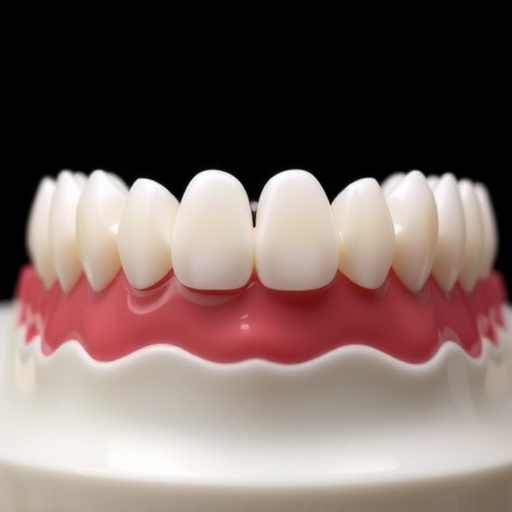
Maintaining optimal oral hygiene requires a consistent daily routine. Incorporate gentle dental care practices such as brushing twice a day with a soft-bristled toothbrush and fluoridated toothpaste, along with flossing once daily. These foundational habits remove plaque buildup, prevent gingivitis, and promote healthy teeth and gums.
Additionally, consider incorporating other effective techniques like using mouthwash to reduce bacteria and freshen breath, or exploring modern solutions like clear aligners for those seeking more discreet orthodontic options compared to traditional metal braces, including dental crowns or implants. Consistent adherence to these practices is key to ensuring long-term oral health and overall well-being.
Long-Term Health Benefits: Preventing Common Dental Issues
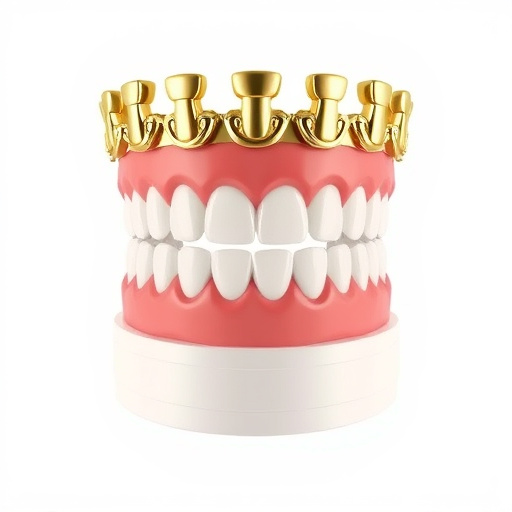
Adopting gentle dental care practices is a proactive approach that can significantly impact long-term oral health. Regularly scheduled check-ups and consistent at-home care routines are the cornerstones of preventing common dental issues. By choosing soft-bristled toothbrushes and fluoridated toothpaste, individuals can gently yet effectively remove plaque buildup without causing damage to tooth enamel or gum tissue.
This preventive measure is crucial in avoiding dental procedures such as tooth extractions or the need for dental fillings. Gentle care helps maintain the natural strength and integrity of teeth, reducing the likelihood of cavities and related complications. Moreover, it promotes overall oral health by nurturing a balanced microbiome, which can ward off periodontal diseases and other systemic health issues that often arise from poor dental hygiene.
Adopting gentle dental care practices is not just a preference; it’s a key to maintaining optimal oral health over the long term. By prioritizing sensitivity and avoiding aggressive techniques, individuals can prevent common dental issues like enamel wear, gum disease, and tooth decay. Daily habits such as using soft-bristled brushes, fluoride toothpaste, and regular dental check-ups, combined with understanding the impact of diet and lifestyle choices, can significantly enhance overall oral health. Embrace gentle care for a brighter, healthier smile tomorrow.


